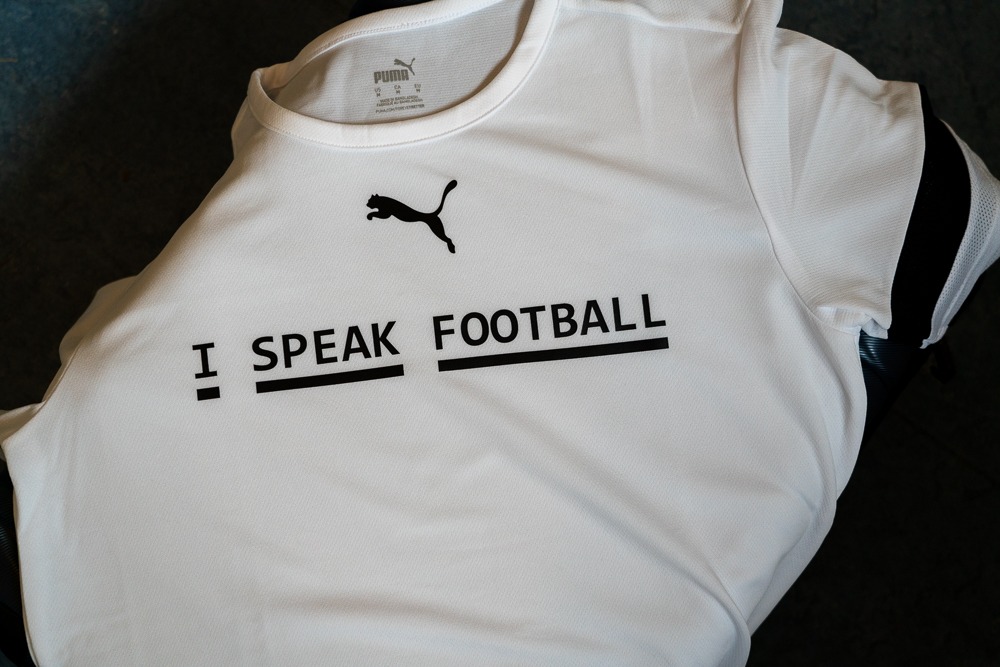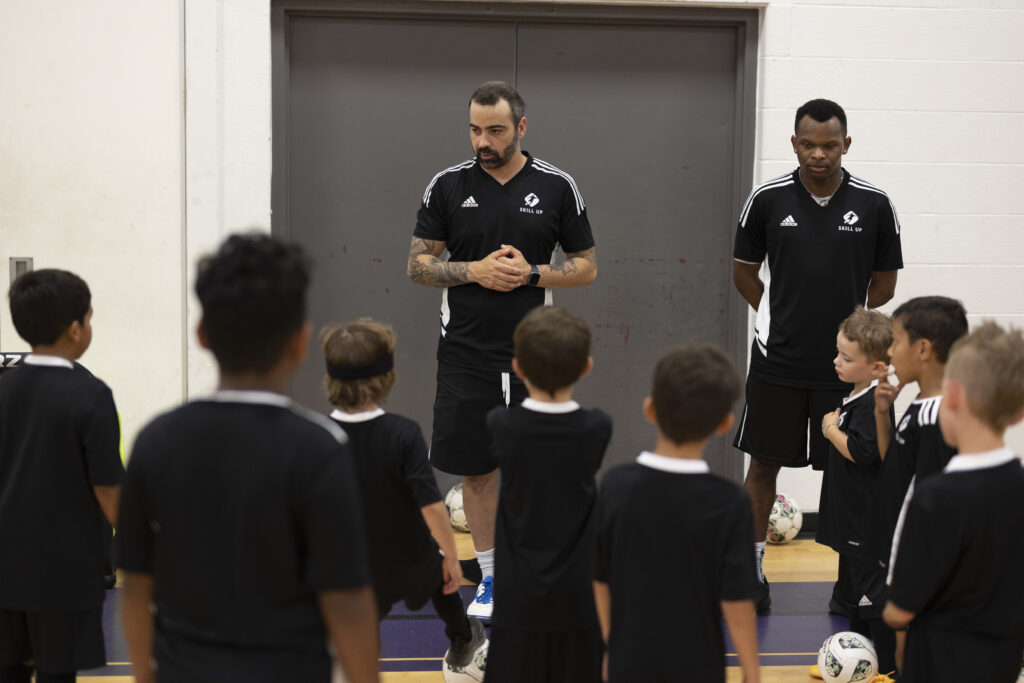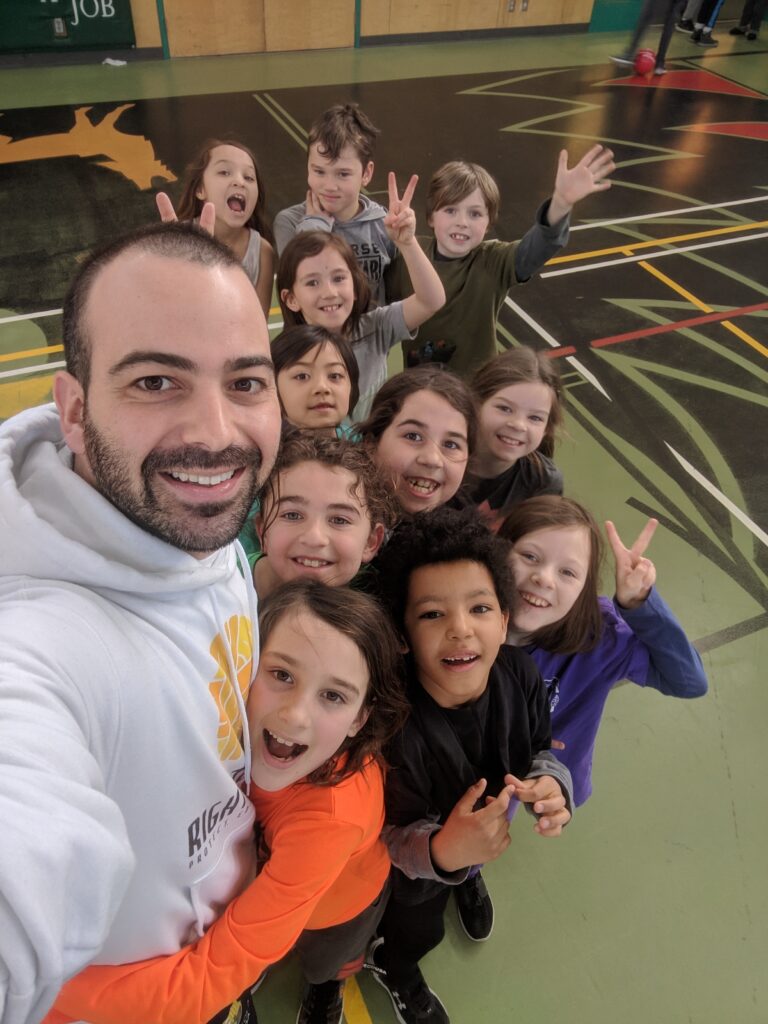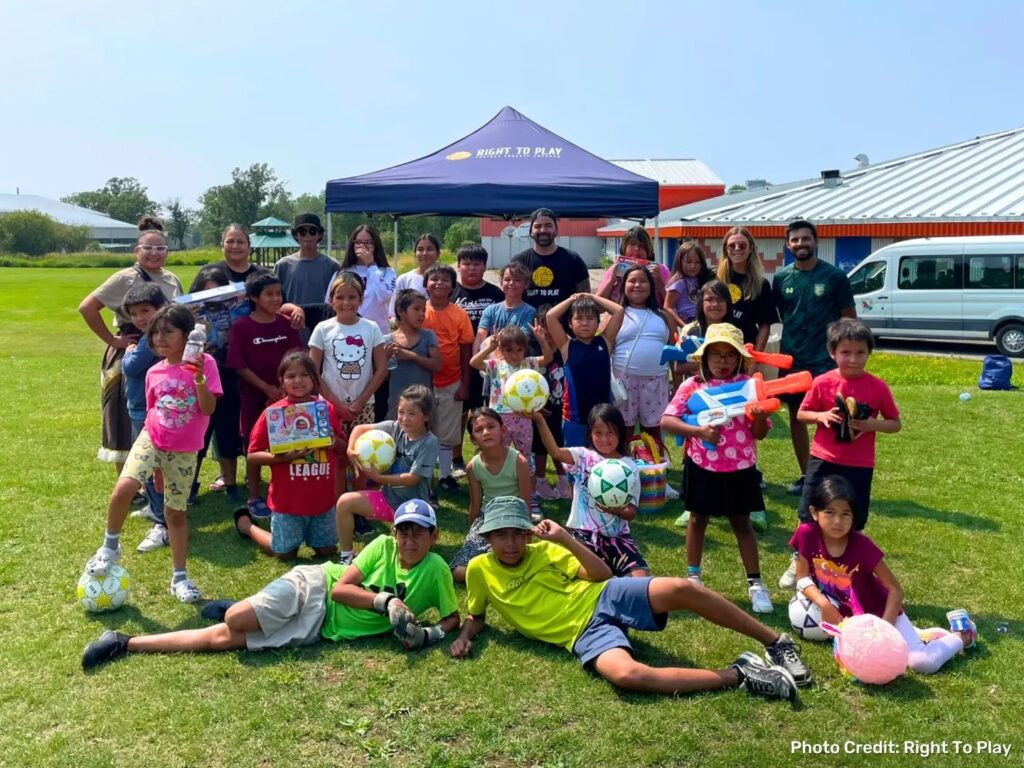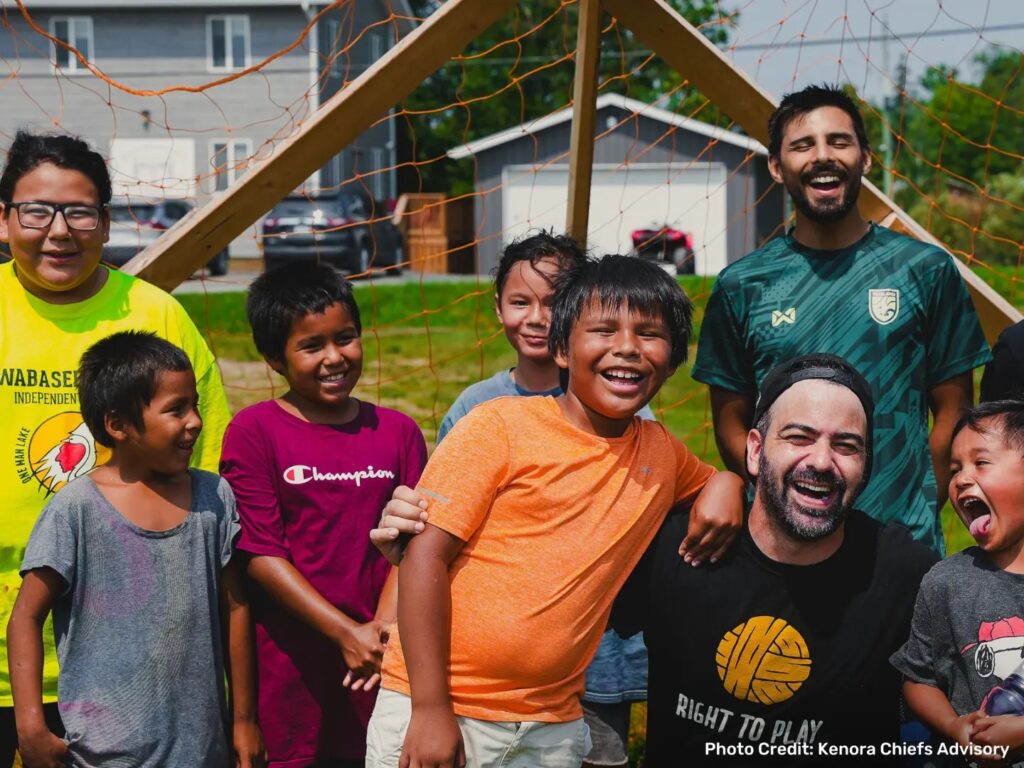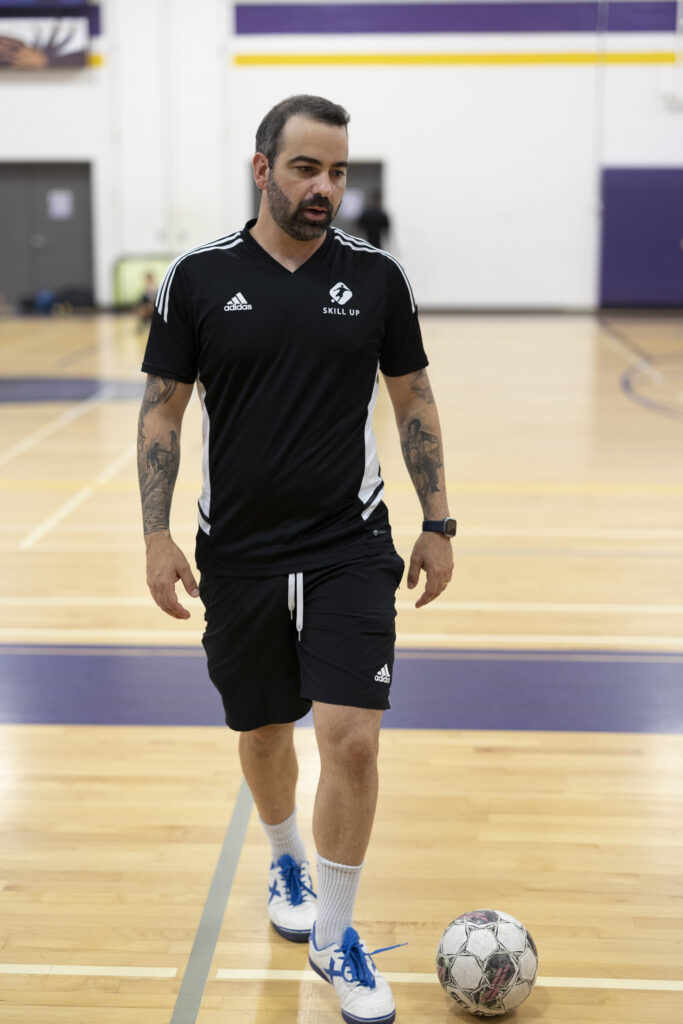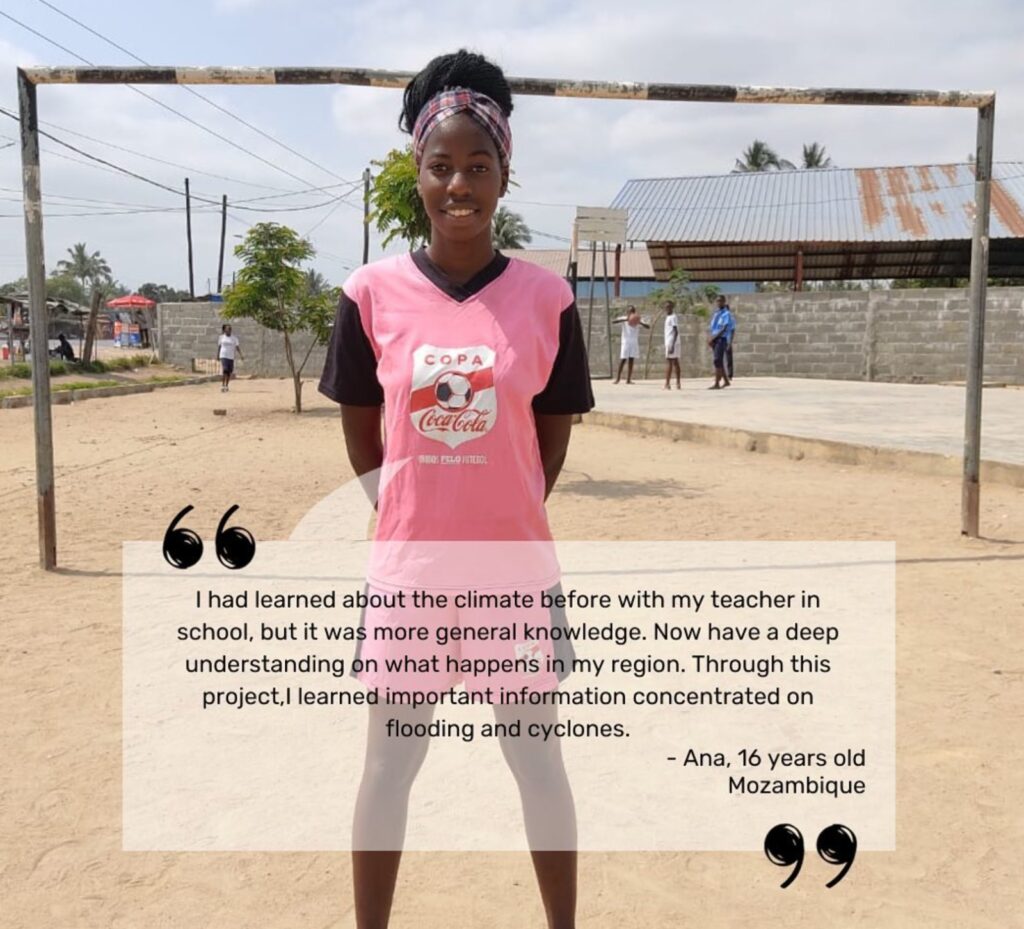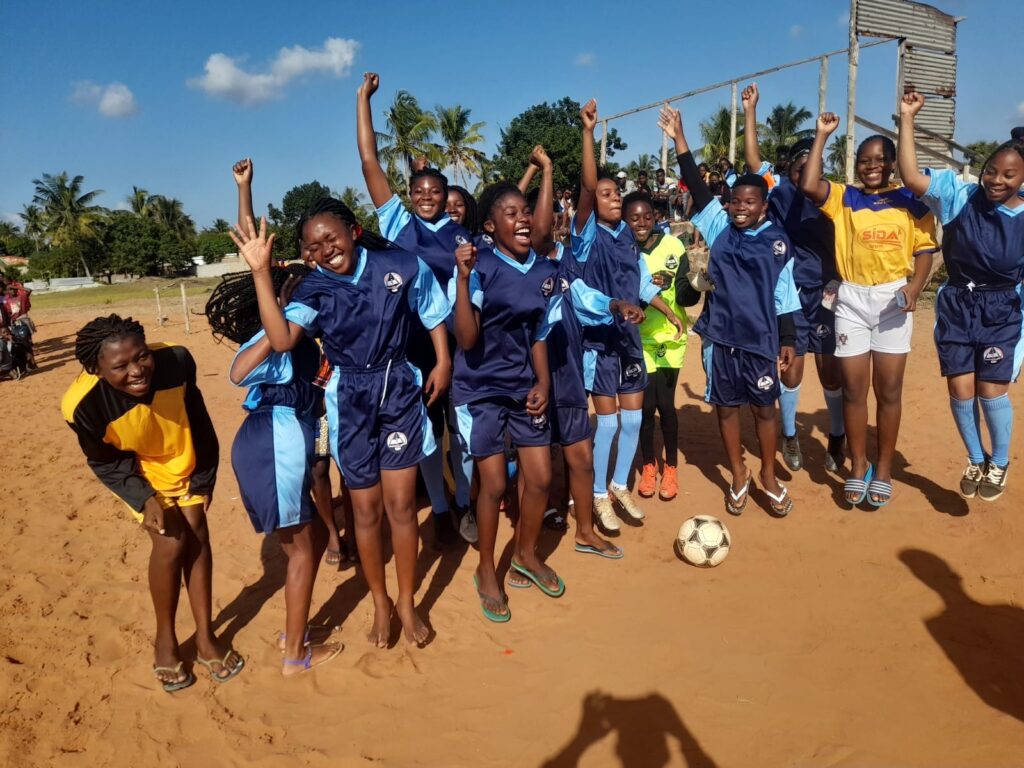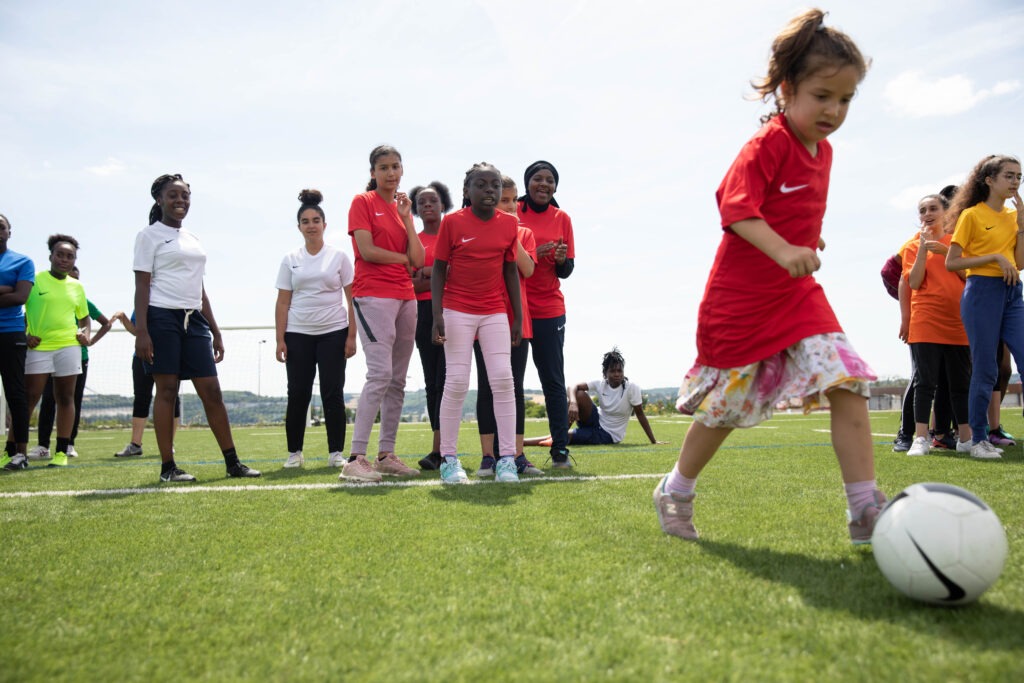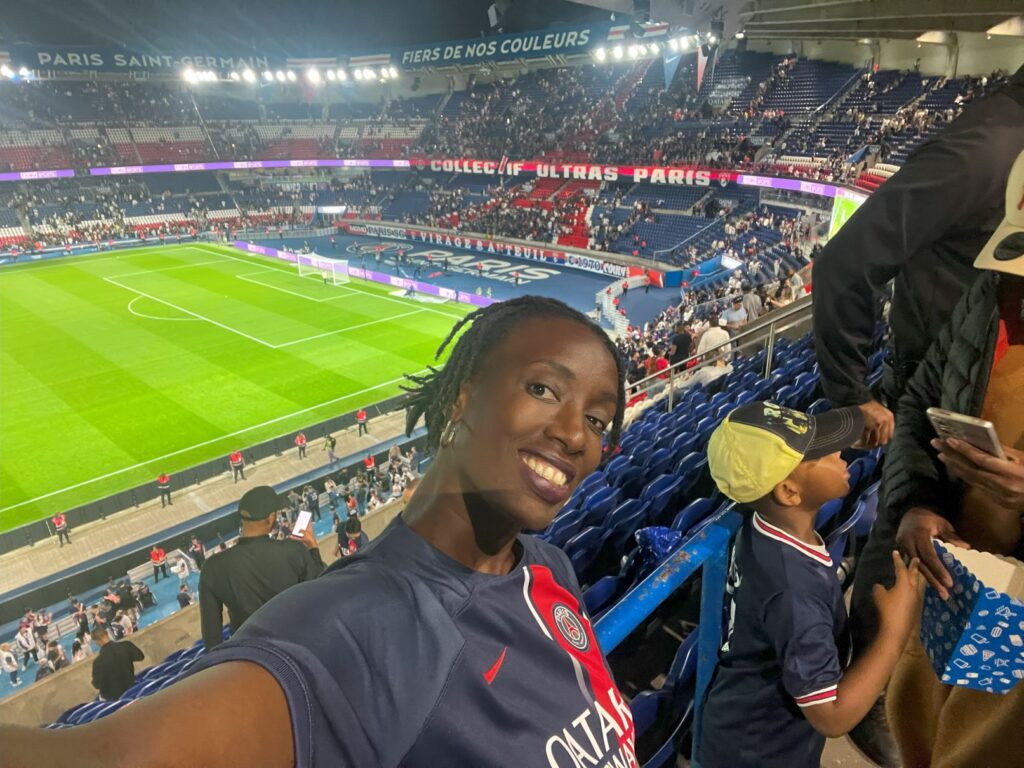Today May 25 is World Football Day! In this spotlight, we take a moment not just to celebrate the beauty of the game, but to recognize the individuals who are using football as a force for good. This year, we spotlight Aya Noguchi—a former professional footballer whose journey from small-town Japan to Europe’s top leagues, and now into social entrepreneurship, reflects the game’s true power to transform lives both on and off the pitch.
After a career that took her from her home in Japan to New York to renowned Linköping FC in Sweden, Aya returned to Japan with a new mission: to use sport as a tool for social change. As the founder of Azitama, she is building a movement that connects football to youth empowerment, gender equity, and community development across Asia. Her story is a powerful reminder that the final whistle on a career isn’t the end of the game—it can be the beginning of something even greater.
Bonito: Aya, thanks so much for joining us- we are so thrilled to discuss the amazing organization that you are building at Azitama!
Aya: Thanks Bonito, proud to be here on World Football Day to discuss such important issues around the power of the game.
Bonito: Can you tell us a bit about the football culture in Japan in general and specifically for womens football?
Aya: Football holds a significant place in Japanese sports culture, with a well-structured league system and strong national teams. Women’s football, in particular, has seen substantial growth. The establishment of the WE League in the 2021–22 season marked Japan’s first fully professional women’s football league, replacing the Nadeshiko League as the top tier. The national team, known as Nadeshiko Japan, achieved global recognition by winning the FIFA Women’s World Cup in 2011, becoming the first Asian women’s team to do so. Their playing style has been likened to Spain’s “Tiki-taka,” emphasizing short passing and movement.
Bonito: Such a great victory in 2011! What is your personal love story with football and can you describe your journey from grassroots football to playing professional in Europe?
Aya: My love story with football began when I was just 3 years old, inspired by my older brother. I joined a boys’ team at my kindergarten and never looked back. Even though people often questioned why a girl was playing football, I was determined—I simply loved the game too much to quit.
Growing up, there were no girls’ teams in my hometown, so I kept playing with boys and traveled long distances to train with girls’ clubs, thanks to the support of my parents. That experience shaped me. It made me more resilient and more serious about pursuing football.
I chose a high school in Tokyo with a strong girls’ team, aiming for the national championships, and later studied sports science at the University of Tsukuba, continuing to play at a competitive level.
After university, I received an athletic scholarship to study in the U.S. and played for my college team in New Hampshire, while also competing in the W-League with New York Magic during the summers. Those years in the U.S. were transformative—I grew a lot as a player and as a person.
At 24, I felt it was now or never to chase my dream of going pro. I took a chance, attended a tryout, and with the help of an agent, signed a short-term contract with Linköping FC in Sweden’s top women’s league. It was the moment I had dreamed of since childhood—playing professionally in Europe.
That journey, from a small-town girl kicking a ball in her brother’s room to stepping onto a European pitch, is the heart of my football story.
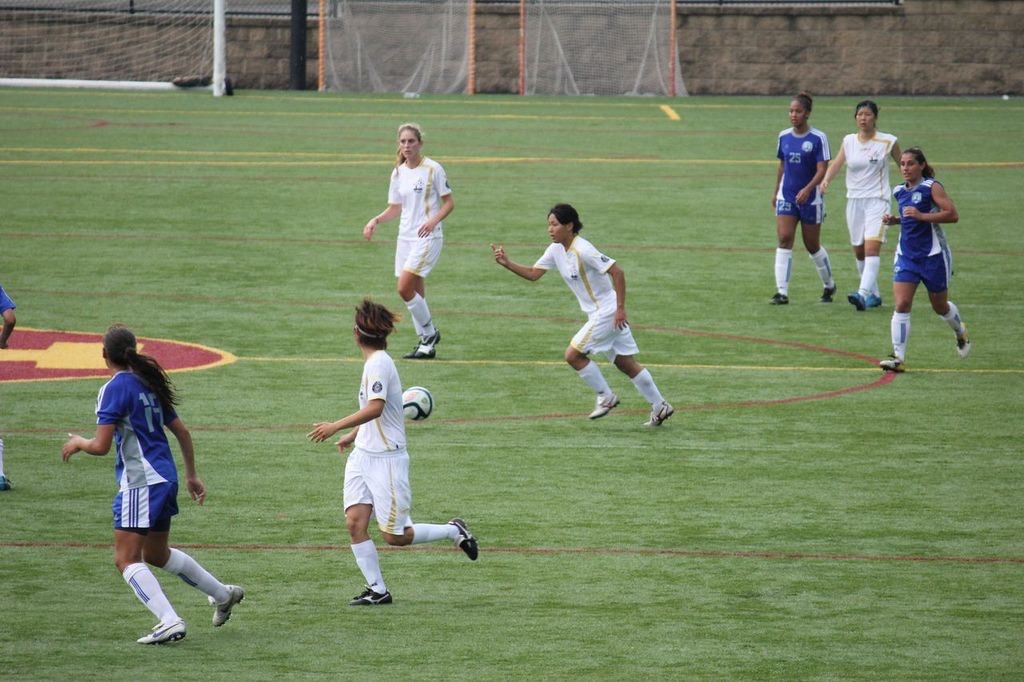
Bonito: How important were your coaches along the way both in your development as a player and as a person? Is there any one coach in particular who really stands out for you?
Aya: Coaches have played a huge role in my development—not just as a player, but as a person. If I had to name one who truly stands out, it would be my very first coach from my local football club. He coached me from the age of 3 all the way through to the end of junior high school.
He taught me the importance of loving the game and putting in the hard work that comes with that passion. He also shaped my mindset—what it really means to be committed if you want to reach a professional level. But more than that, he gave me life lessons. At the time, becoming a professional women’s footballer in Japan wasn’t really an option, so he always emphasized the importance of thinking beyond football—about education, about a second career, and about building a balanced life.
He encouraged me to aim for the national team, but also to stay grounded and think about my dual career. Thanks to his guidance, I built strong foundations—not just in skills and mindset, but also in physical health, which helped me avoid major injuries throughout my career.
Looking back, I truly believe that everything I achieved in football was made possible because of what he taught me in those early years.
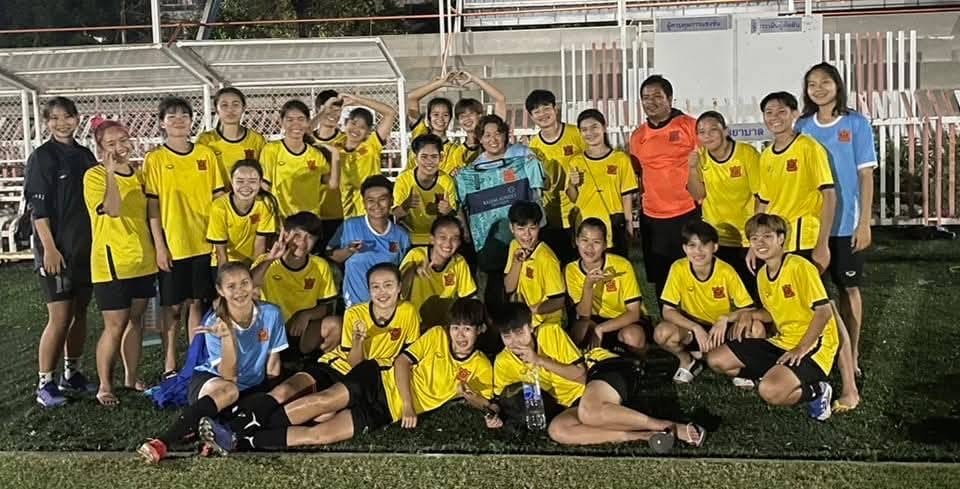
Bonito: Can you tell us about Azitama? How did the idea come about and what do you hope to achieve with the organization?
Aya: Azitama is a Japanese social enterprise I launched in 2024, shaped by my journey through professional football and international development. The idea came from a deep frustration — and hope. While working in the field, I noticed how often sport was excluded from serious discussions around sustainability and social impact in Asia, despite its immense potential. I created Azitama to change that narrative.
In Japan and across Asia, the concept of “Sport for Development” is still not widely understood. As a result, there’s a lack of both academic research and practical implementation. More importantly, professionals in this field don’t yet have an environment where they can fully thrive. My goal with Azitama is to help build that environment — to strengthen the field itself so that talented individuals can contribute meaningfully and sustainably through sport.
Azitama aims to build a cross-sector ecosystem where sports are tools for equity, education, and empowerment. Our work ranges from supporting grassroots organizations to helping companies integrate sport into ESG and sustainability strategies. At its core, Azitama is about connection — connecting people, ideas, and institutions to create long-term, meaningful impact through sport.
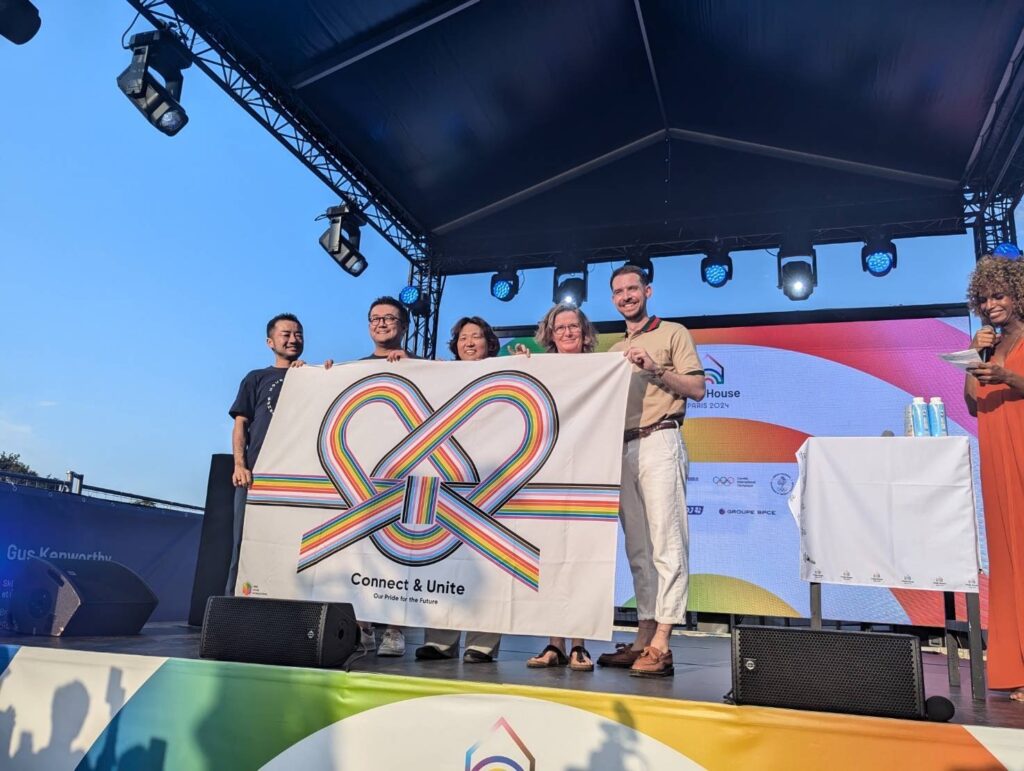
Bonito: Did you always think that you would be in the social impact field after your career as a footballer ended?
Aya: Actually, no—I didn’t always imagine I’d be working in the social impact field after my football career. For a long time, I wanted to become a coach. I studied coaching at university, gained experience in different settings, and thought I would become a school teacher who coached football, especially in a school club environment. That was my original dream.
But everything changed after I studied in the U.S., played professionally in Sweden, and then interned with an NGO in Zambia that used sport to support girls’ education. That experience opened my eyes to a whole new world—where football wasn’t just a sport, but a way to connect with people across cultures, to have meaningful conversations, and to take action together on equal footing.
While in Zambia, I was invited to a festival hosted by Discover Football, a German organization promoting feminism through football. There, I met people from all over the world—Cambodia, Kenya, Iraq, Burkina Faso—talking about gender and equality through the lens of sport. It was powerful. I remember thinking, “I want to be part of this. I want to work alongside people like this, using football to make a difference.”
That moment changed everything. I realized I had a deep passion for using football to drive social impact. After returning to Japan, I made the decision to pursue this as my professional path—and to become a specialist in this field.
Bonito: Can you tell us a bit about the main issues facing Asia (Azitamas main geographical focus) and how you see sport as a potential tool to address these issues?
Aya: East and Southeast Asia are home to fast-growing economies and dynamic cultures, but also face complex social challenges — from widening inequality to youth disconnection, gender disparities, and a lack of inclusive community infrastructure. Many of these issues are deeply rooted and require innovative, cross-cutting solutions.
That’s where sport comes in. Azitama sees sport not just as a game, but as a gateway — to confidence, belonging, leadership, and opportunity. We use sport to break down barriers, particularly for young people and marginalized communities. Our approach is both strategic and systemic: we strengthen nonprofit capacity, align sport with corporate sustainability goals, and create platforms for researchers, funders, and practitioners to collaborate. It’s about shifting the mindset from sport as entertainment to sport as a vehicle for inclusive, collective progress.
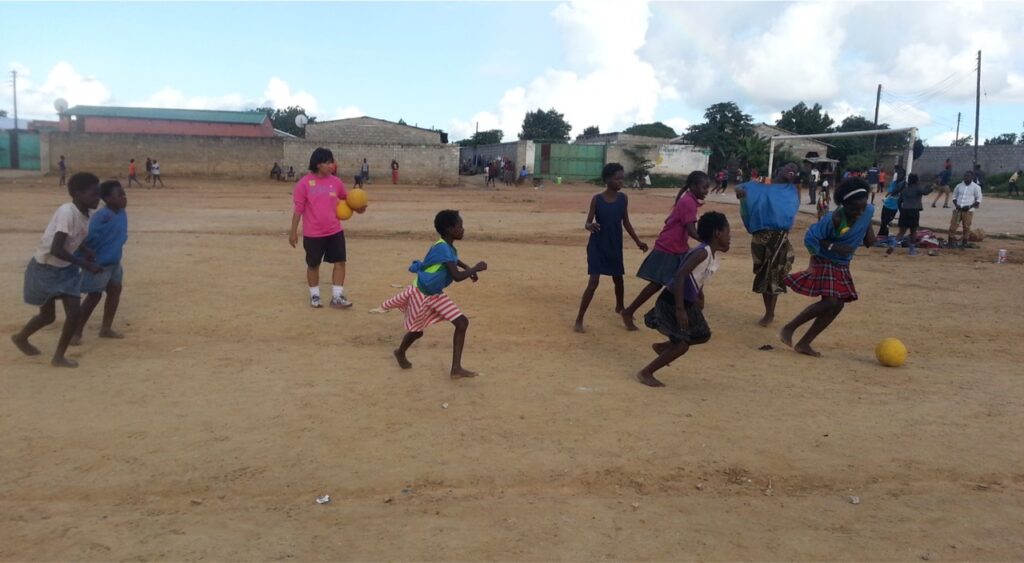
Bonito: Imagine you could collaborate with any organization on a sport and social impact project- who would you choose and why?
Aya: If I could collaborate with any organization on a sport and social impact project, I would choose Japanese and Asian-based companies. Because I believe there’s so much untapped potential. Right now, very few companies in Japan or across Asia are investing in sport as a tool for addressing social challenges. I see this as a huge opportunity. I’d love for Azitama to work alongside these companies to co-create impactful CSR and community engagement initiatives that are rooted in Sport for Development.
My dream is to build long-term partnerships where we not only co-design projects with local nonprofits, but also bring in technical expertise—like needs assessments, project design, monitoring, and evaluation. By doing so, we can create more professional, locally driven, and sustainable sport-based initiatives in Asia.
Ultimately, I hope to help shape a system where sport becomes a recognized and respected avenue for corporate social investment in our region.
Bonito: As a former professional football player, tell us why you think football is such a universal language for so many around the world?
Aya: Football is such a universal language because it transcends cultural and language barriers, uniting people from all walks of life.
When I played football in the U.S., I realized that my game, shaped by Japanese football culture, was quite different from the styles of players from Brazil, Germany, the U.S., and the U.K. The way we played, the expectations, and even the way we communicated on the field, were all influenced by the culture we grew up in. For instance, in Japan, we were taught to focus and be serious during practice, while in Brazil, players often had a more joyful, carefree approach. In Germany and England the game was intense but disciplined. Yet, despite these differences, football allowed us to connect and communicate without words.
Football became my entry point into any community. No matter where I was, I could always connect through the game. I could walk into a completely unknown place, get involved in a pickup game, and have fun with others. Football became my way to find a sense of belonging, a universal language that allowed me to blend in anywhere. That experience made me realize just how powerful sport is in connecting people.
Through football, I learned about different cultures and the ways people think. It gave me a chance to understand diverse backgrounds and the nuances of communication that go beyond language. For me, no matter where I went—whether it was the U.S., Sweden, Zambia, or Japan—football was my bridge to community. It was always there, allowing me to join groups and connect with others, even in unfamiliar places. Football truly became my home, and that’s why it’s such a powerful universal language.
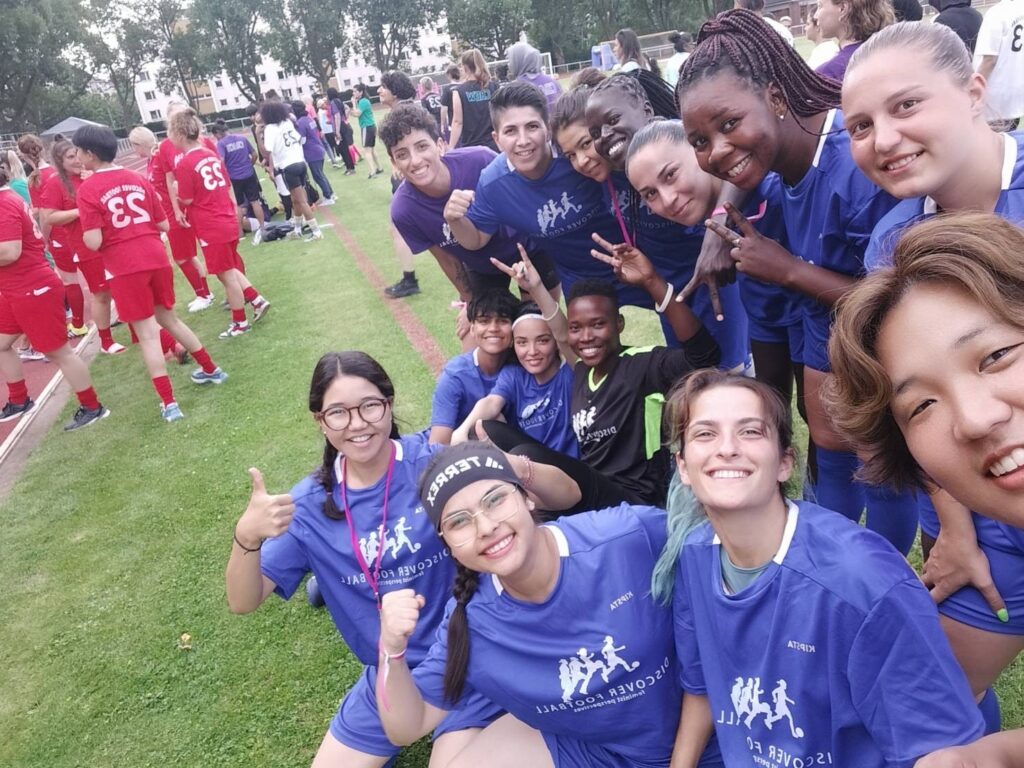
Bonito: Finally, having played football in both Japan and in Europe, what are the main differences you noticed in the approach to football in both regions?
Aya: Having played football in both Japan and Europe, there were many differences, but speaking from a gender perspective, one of the main differences I noticed—was how gender equality is approached. When I moved to Sweden in 2015, Japan still didn’t have a professional women’s league. I had an opportunity to have a meal with sponsors of a football club, and I asked them why they supported the women’s team. Their response shocked me. They asked, “Why wouldn’t we support the women’s team? Why would we only support the men’s team?” This was such a stark contrast to what I had experienced in Japan, where there was a widespread belief that investing in women’s football wouldn’t generate profits, so sponsors and clubs weren’t interested.
Europe is big, but comparing Sweden, where I played football, with Japan, it’s clear that gender equality and the progress towards gender balance are much more advanced. In Japan, it’s still a challenge to convey that women should have the same rights as men in football — that women can demand the same things as men, and receive the same treatment. This was incredibly difficult to communicate, and there was a lack of understanding. I still feel this difference today, and I felt it back then as well.
Bonito: Aya, thank you so much for sharing your story with us today- so excited to see all of the big things Azitama will accomplish in the future.
Aya: Thank you for having us on the Bonito platform- I hope we can find fun ways to collaborate in the future!
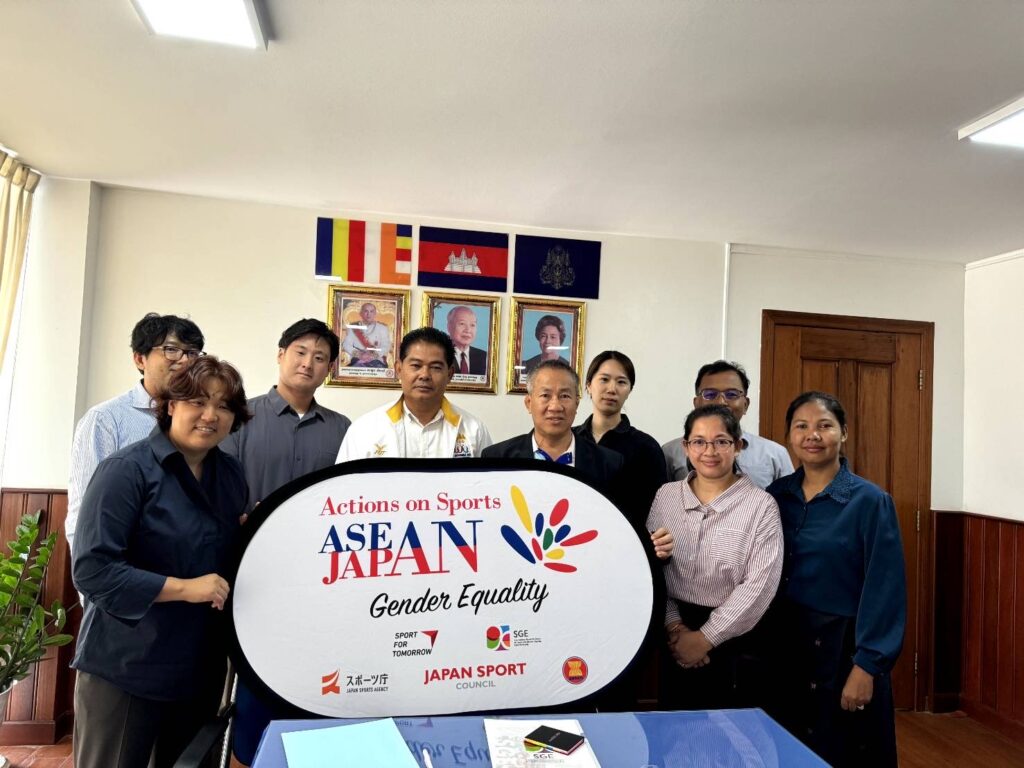
BIO
Name: Aya Noguchi
Organization: Azitama Corp.
Role: CEO/Founder
Favorite Football Club: Afghanistan Women’s National Team
Dream sport for good organization that you would love to collaborate with on a project: Women Win


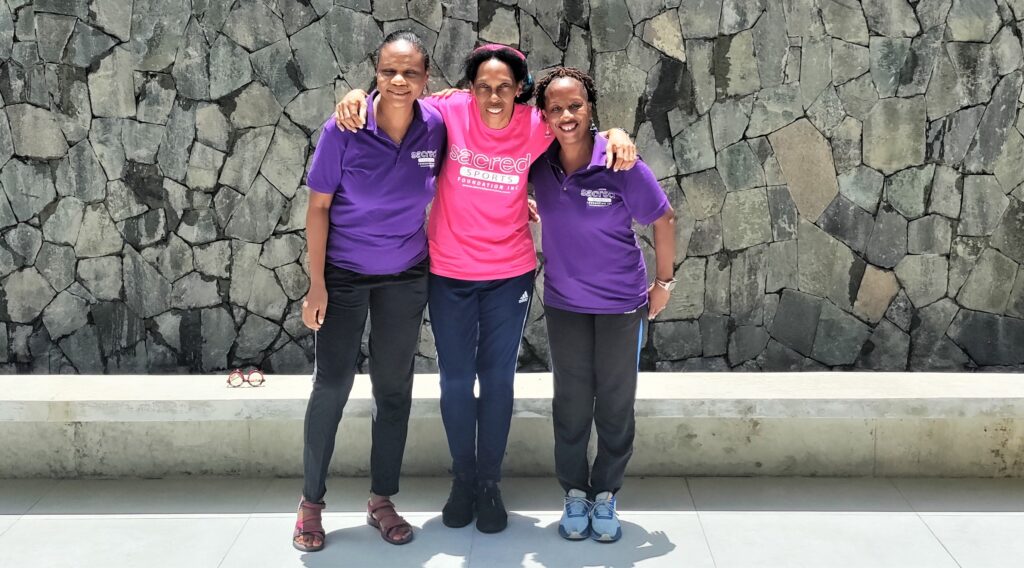
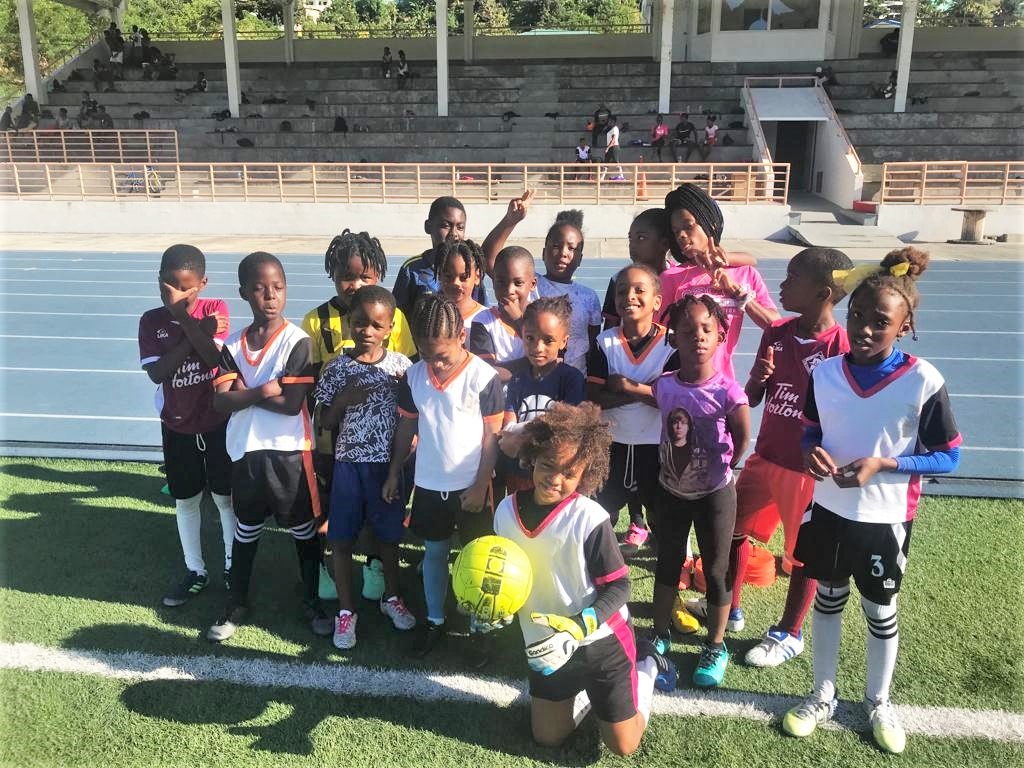
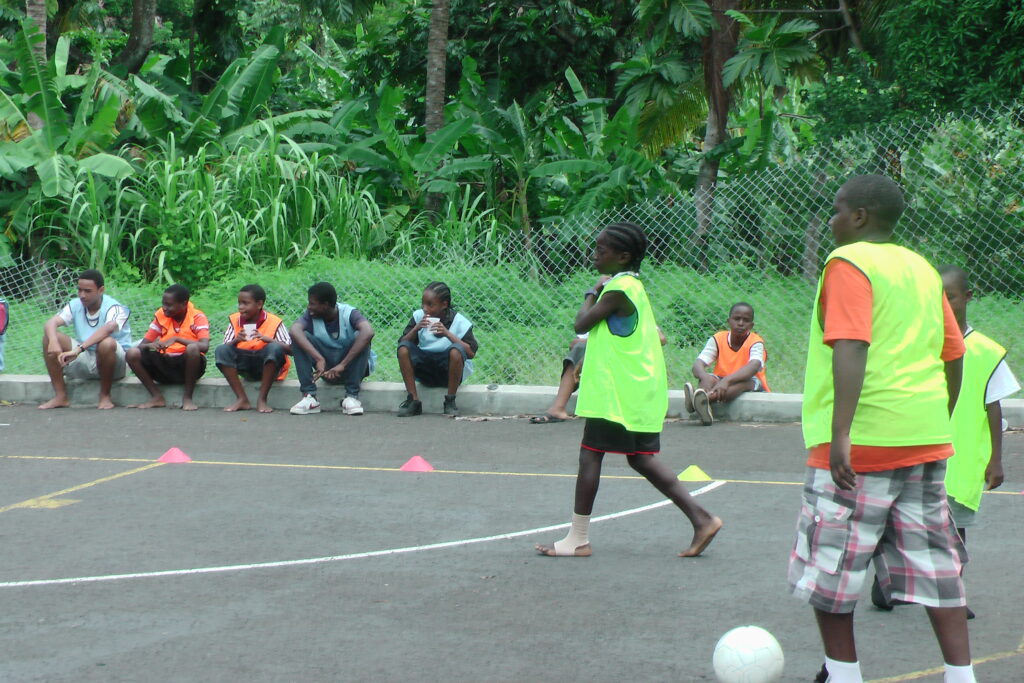
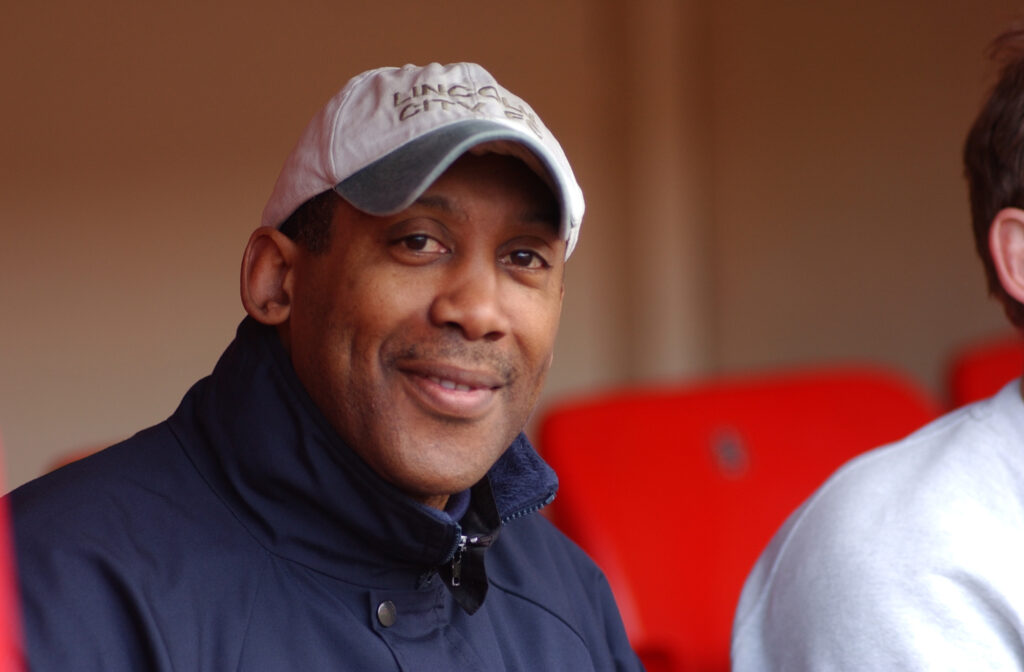
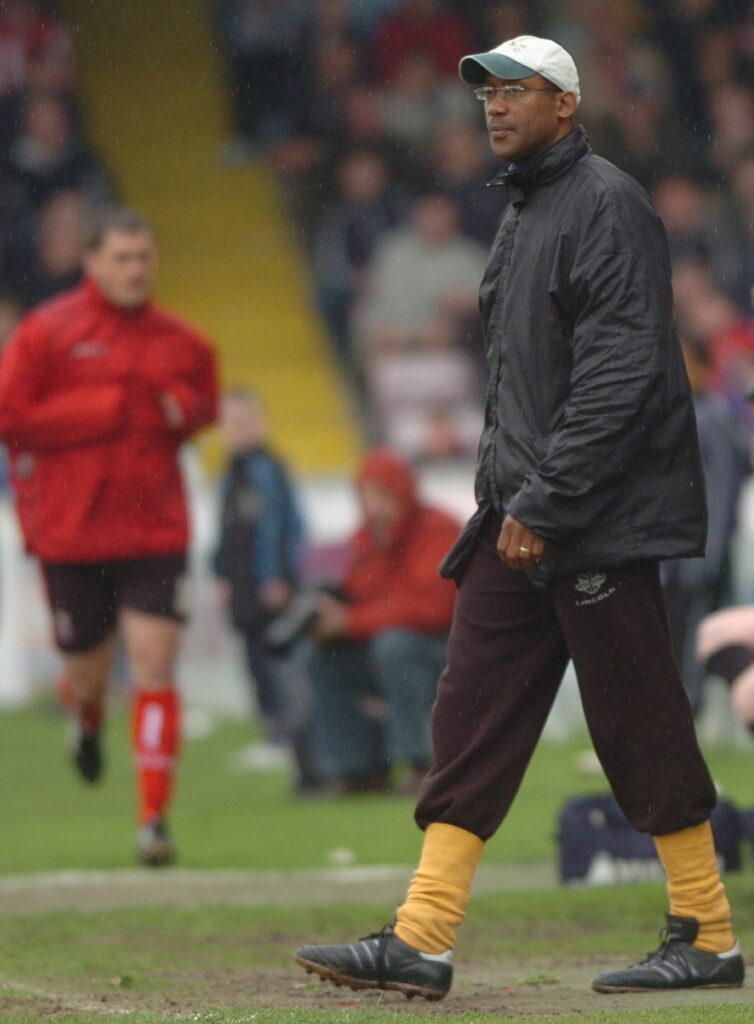
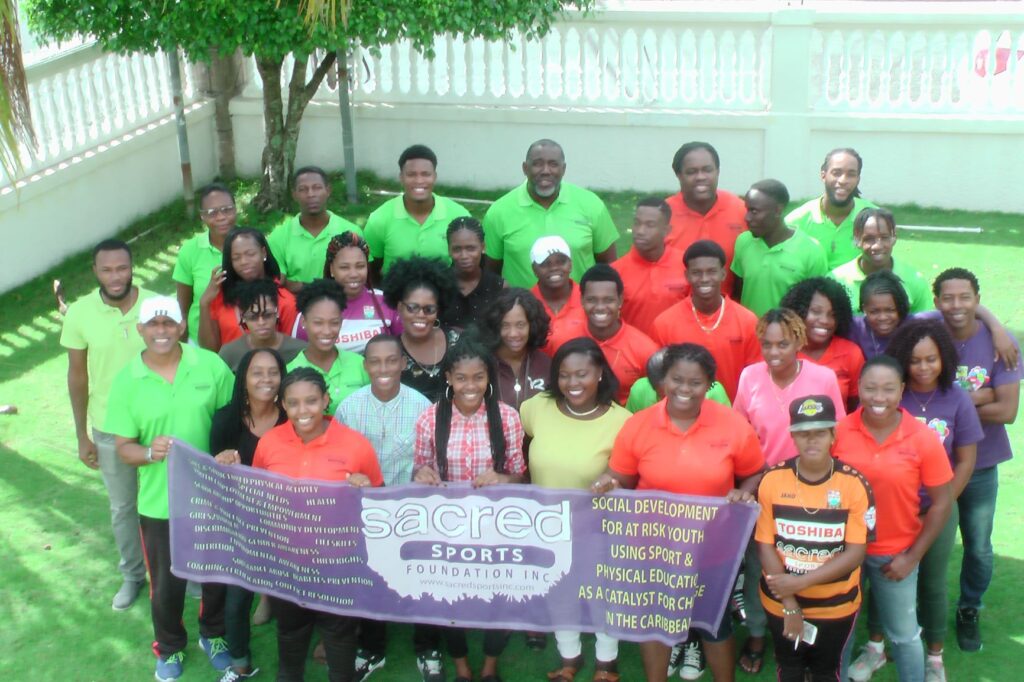
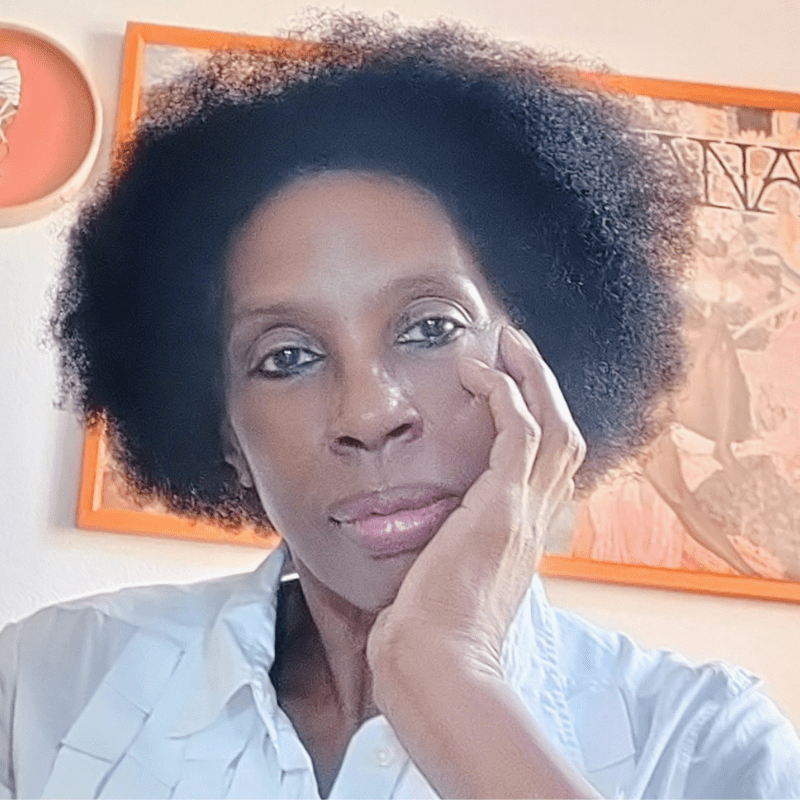

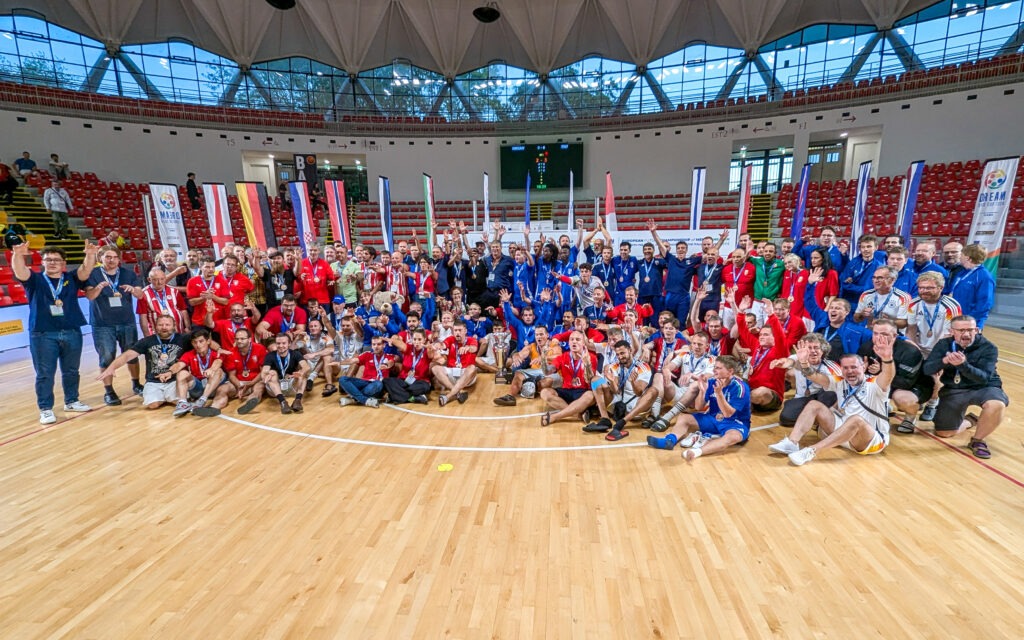
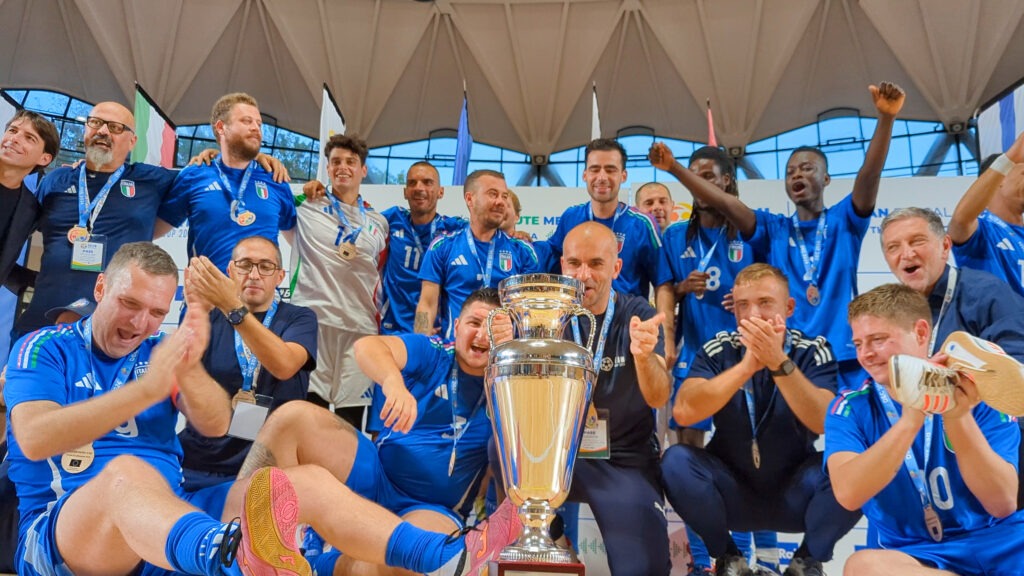
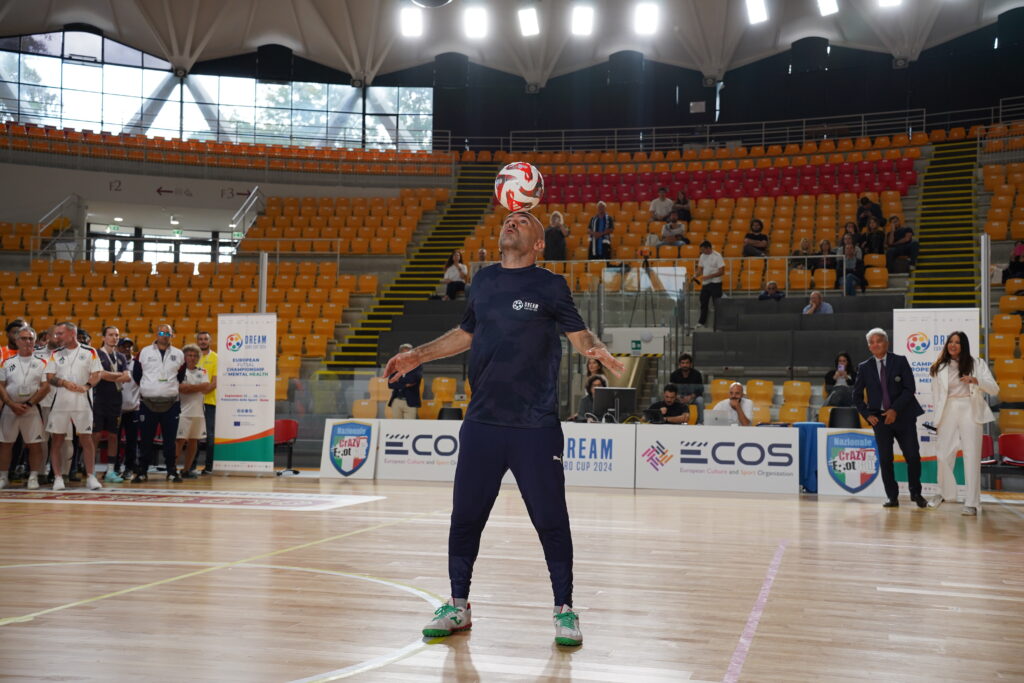
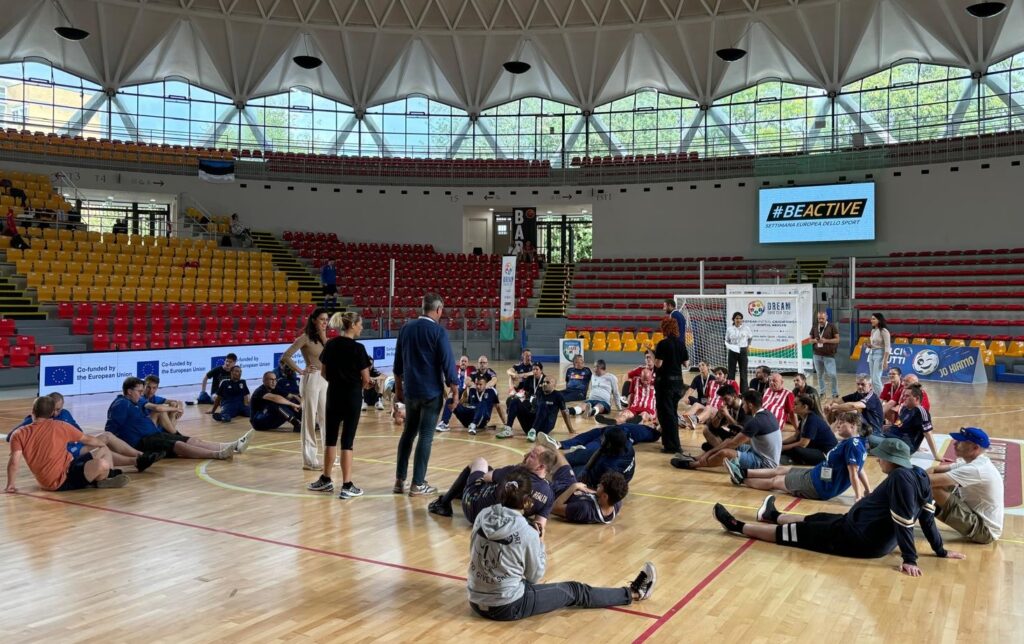




















 Bonito: Djibril, thank you so much for joining us on this International Migrants Day to speak about your wonderful program. Can you share your personal journey and how did your passion for football inspire you to create the I Speak Football program?
Bonito: Djibril, thank you so much for joining us on this International Migrants Day to speak about your wonderful program. Can you share your personal journey and how did your passion for football inspire you to create the I Speak Football program?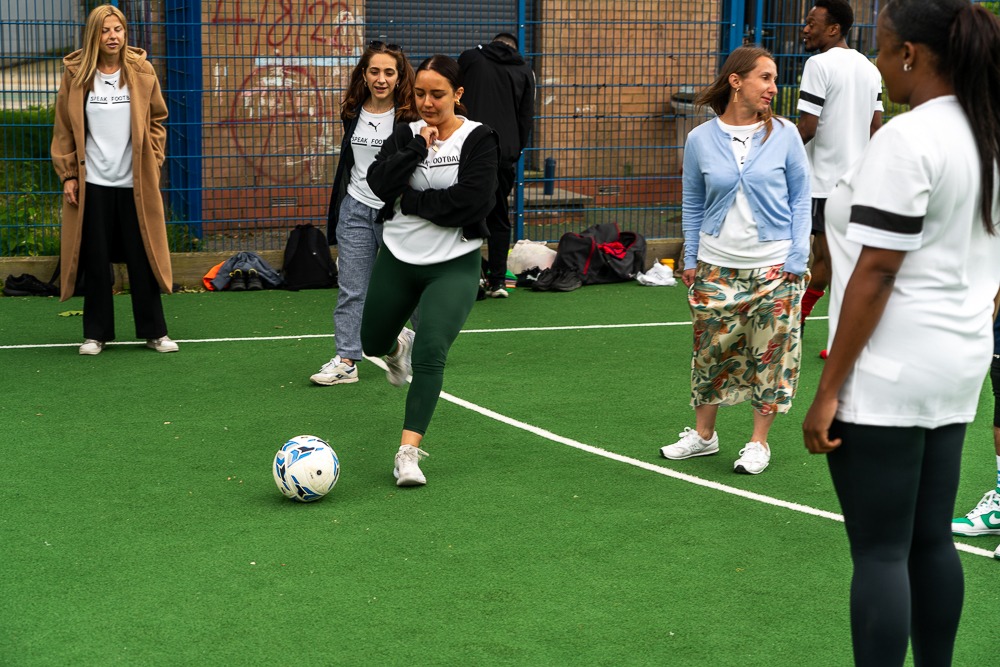 Bonito: How important is it for newcomers to have a safe and productive environment to learn the local language of their new country?
Bonito: How important is it for newcomers to have a safe and productive environment to learn the local language of their new country?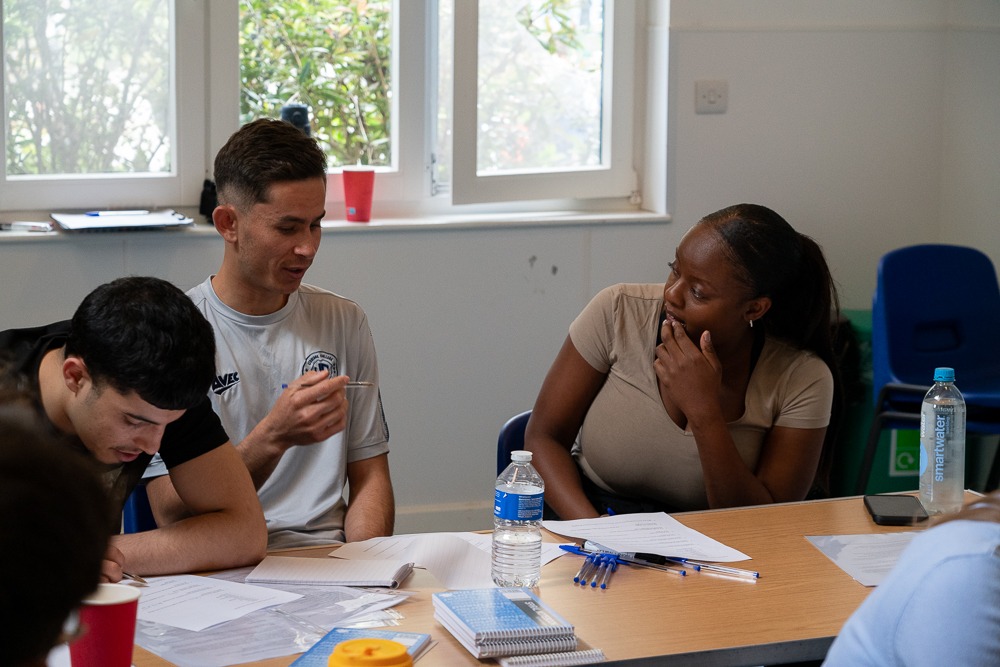 Bonito: The journey that many immigrants face in moving to their new countries often presents a tremendous strain on mental health- how does football help to improve that and to build further resilience going forward?
Bonito: The journey that many immigrants face in moving to their new countries often presents a tremendous strain on mental health- how does football help to improve that and to build further resilience going forward?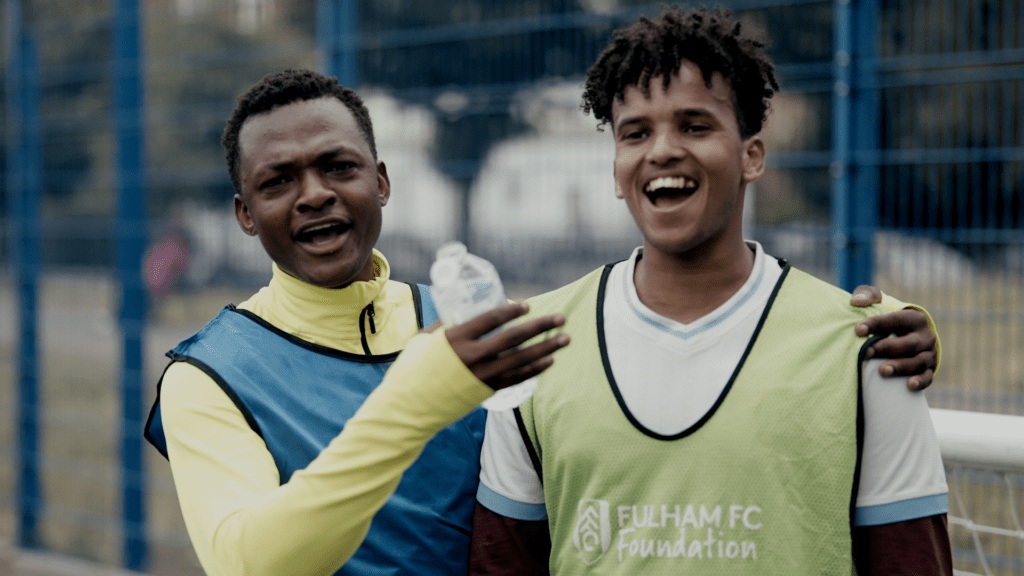 Bonito: Reflecting on your journey in football, is there a particular moment or experience that profoundly touched you and reinforced your commitment to this work?
Bonito: Reflecting on your journey in football, is there a particular moment or experience that profoundly touched you and reinforced your commitment to this work?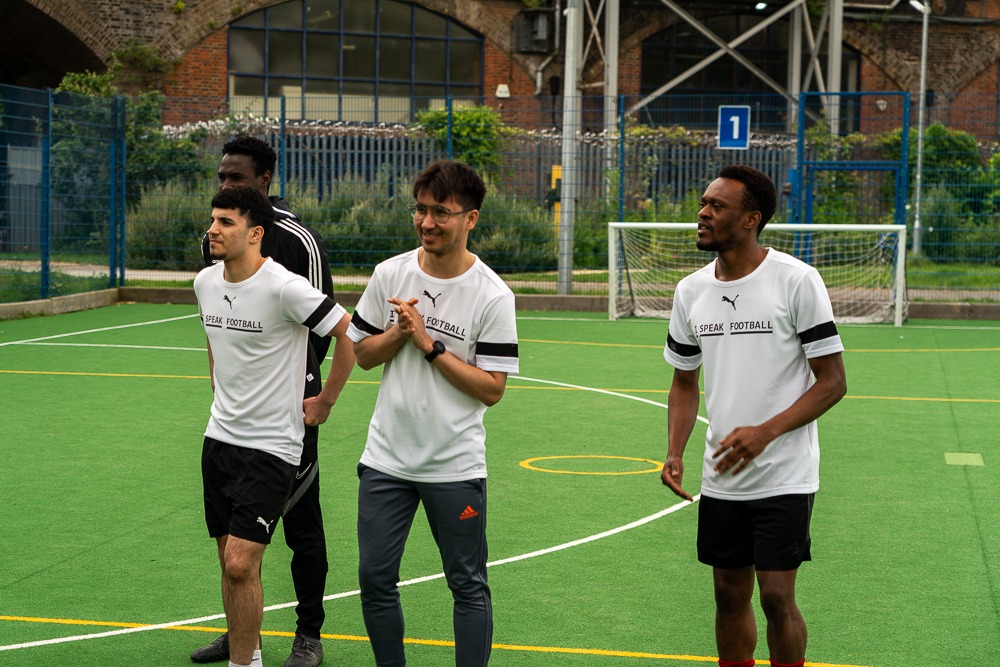 Bonito: How important are partnerships to a program like yours? local communities, mental health experts, language teachers- it feels like you need to have a really wide ranging team?
Bonito: How important are partnerships to a program like yours? local communities, mental health experts, language teachers- it feels like you need to have a really wide ranging team?